Features of PTFE conveyor belts:
1.High temperature resistance--It can continuously work under-140 to 260ºC, max resist high temperature up to 360ºC
2.Air permeability--It can avoid wasting heat and improve drying efficiency.
3.Chemical resistance--It can resist all most of chemical medicines.
4.Non-Sticky--It can easily remove all kinds of adhesives such as resin, paint and chemical medicines.
5.Good flex fatigue resistance--It has high tensile strength and excellent flex fatigue resistance.It's better for small wheels
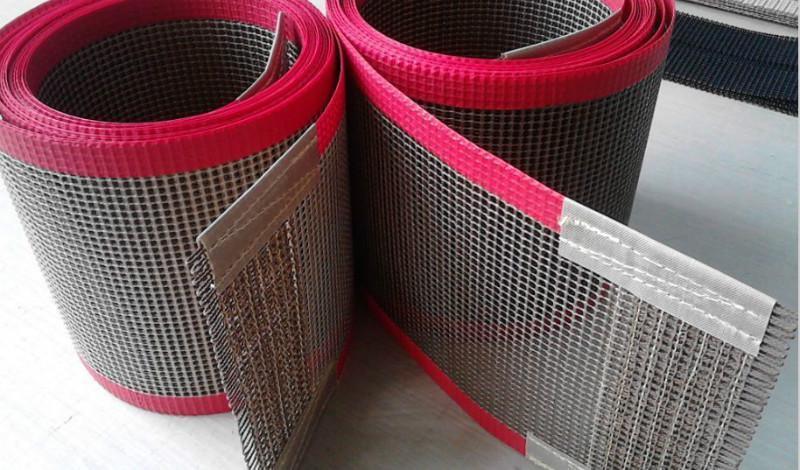
Applications:
1.Drying machine for non-woven textile, textile printing, silk- printing and dyeing machine.
2.Shrinking machine for garment fabric, high-frequency and UV dryer.
3.Conveyor belt for hot-air dryer, various of food baking, quick-frozen machines.
4.Oiling machine for paper glazing and waxing, plant engineering.
5.Seperating sheet for hardboard production etc.
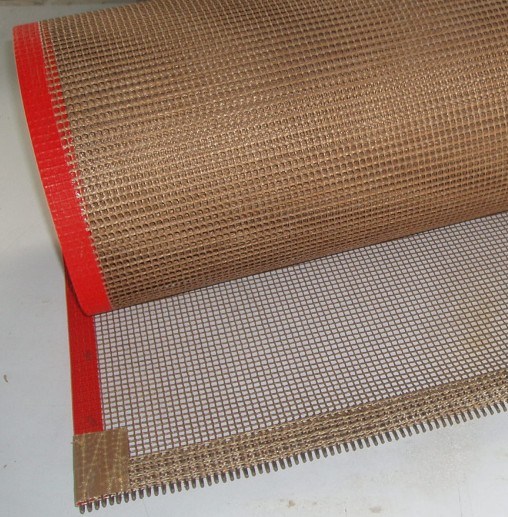
| Model | Material | Mesh size | Thickness | Weight | Temp resistance | Max Width |
Tensile Strength |
| 6001 | Fiberglass | 1x1mm | 0.5mm | 370g/m² | -70-260ºC | 4000mm | 310/290N/cm |
| 6002 | Fiberglass | 2x2mm | 0.7mm | 450g/m² | -70-260ºC | 4000mm | 350/310N/cm |
| 6004 | Fiberglass | 4x4mm | 1.0mm | 400g/m² | -70-260ºC | 4000mm | 390/320N/cm |
| 6004B | Fiberglass | 4x4mm | 1.0mm | 450g/m² | -70-260ºC | 4000mm | 390/320N/cm |
| 6007 | Fiberglass+Kevlar | 4x4mm | 1.2mm | 600g/m² | -70-260ºC | 4000mm | 895/370N/cm |
| 6008 | Fiberglass | 4x4mm | 1.0mm | 585g/m² | -70-260ºC | 4000mm | 395/370N/cm |
| 6008B | Fiberglass | 4x4mm | 1.0mm | 585g/m² | -70-260ºC | 4000mm | 395/370N/cm |
| 6013 | Fiberglass | 10x10mm | 1.2mm | 450g/m² | -70-260ºC | 4000mm | 360/300N/cm |
| 6015 | Fiberglass | 0.5x1mm | 0.5mm | 420g/m² | -70-260ºC | 4000mm | 310/290N/cm |
| 6025 | Fiberglass | 2*2.5mm | 0.9mm | 600g/m² | -70-260ºC | 3000mm | 390/320N/c |
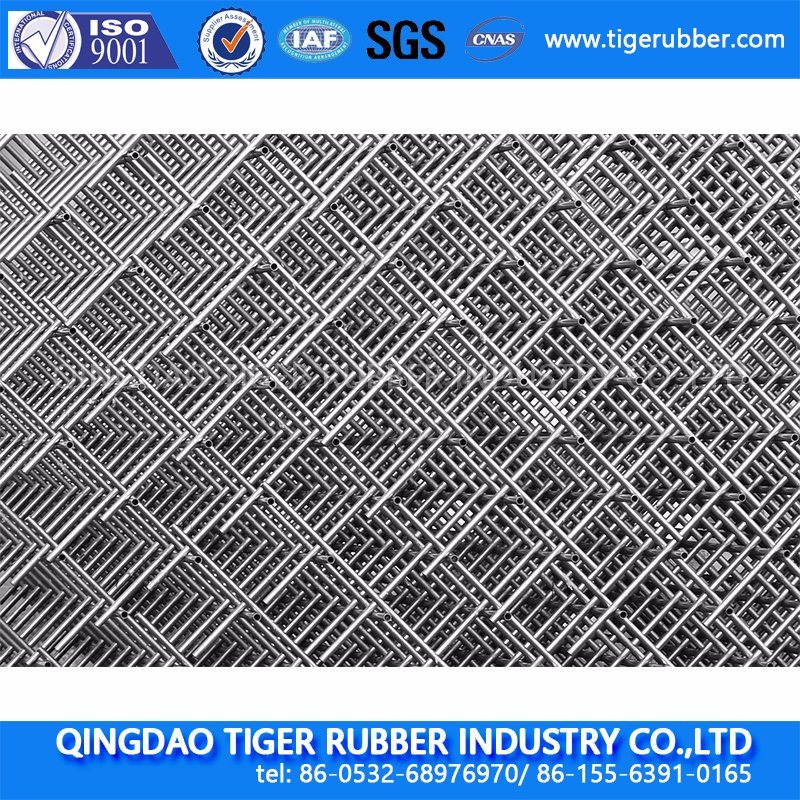
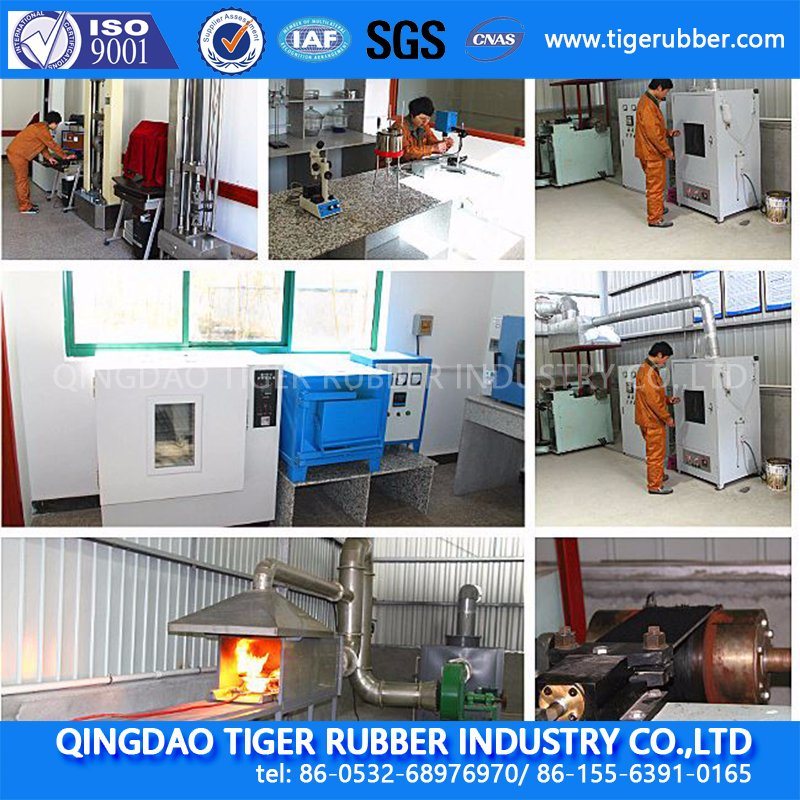
Any interests pls contact :-
Bashir ahmed
Â
Â
Â
TEL:+8615610535199
Qingdao Tiger Rubber Industry Co.,Ltd
Address: No.226 of Meijing Building, No.3 of Hancheng Road, Qingdao Free Trade Port Area, Huangdao District , Qingdao ,China .
Tel: 0532-68976970
Fax: 0532-68976970
Â
Feiyiya Inclined Plate Clarifiers Use Gravity & Innovative Engineering
A gravity clarifier is the most economical method of removing solids from liquids, using natural gravity as the source of energy and it is free. A clarifier simply provides a non-turbulent zone where heavier than liquid solids, suspended by turbulence, are given sufficient time to settle to a quiescent surface. The HEI inclined plate clarifiers are compact units with multiple layers of settling area utilizing less than 25% of the floor space required by conventional clarifiers.
Principle of Clarifiers
A particle carried forward by the velocity of the liquid flow must settle at a rate that allows it to reach the bottom before passing through the clarifer. Thus, particles beginning at a point [a" must traverse some route lying between ab and ab` in order to avoid being carried over the outlet.
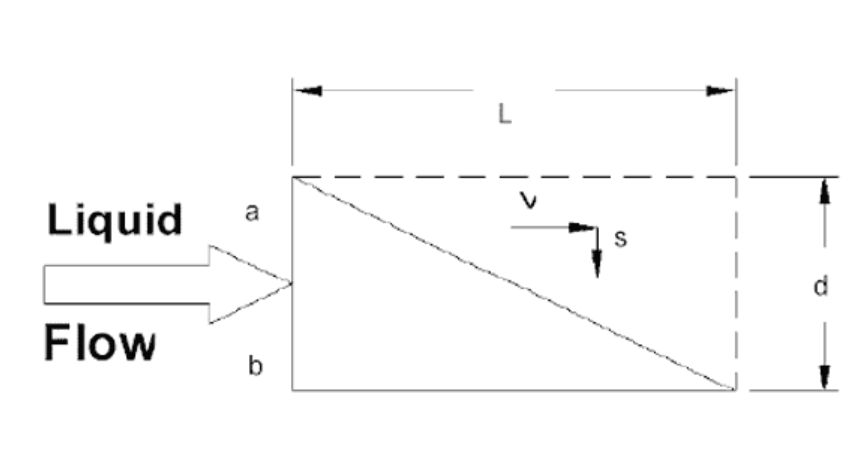
If V is the horizontal velocity of the liquid, S the solids particle vertical settling velocity, L the length of the settling device, and D its depth, then particles entering at point A will settle to the bottom of the device only if V does not exceed: S(L/D)Since Vmax / S = L / D then, Vmax = S (L / D)
Therefore, the velocity at which a horizontal clarifying device may be operated successfully is directly proportional to its length and inversely proportional to its depth.
This analysis applies to multiple horizontal plate units also. The spacing between plates is usually a few inches as opposed to a depth of several feet in a horizontal tank; therefore, [settling-out" times are dramatically reduced. The flow must be non-turbulent to prevent settled solids from being re-entrained within the moving liquid. Small plate spacing and a large surface area permits laminar flow at higher velocities than large horizontal tanks would allow.
Horizontal clarifying devices become self-flushing if they are inclined at an angle which exceeds the angle of repose of the settled solids. In such cases, flow enters the lower end of the device where settling particles move to the floor eventually sliding back out the entrance. Clear effluent leaves the top of the device.
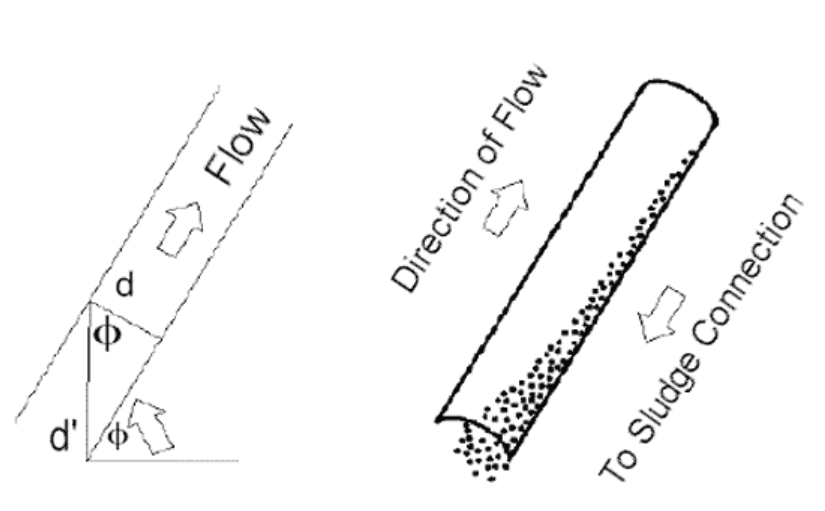 However, when the device is inclined, the furthest settling particles no longer fall through distance D but some longer distance D`. This new longer settling distance D` is related to D by the relation: D = D` cos Ø.
However, when the device is inclined, the furthest settling particles no longer fall through distance D but some longer distance D`. This new longer settling distance D` is related to D by the relation: D = D` cos Ø.
Theta [Ø" is the angle, the device is inclined to the horizontal plane. Thus settling distance is increased by the factor: 1/cos Ø In the case where Ø = 60º, 1/cos Ø = 2.
The maximum settling distance is twice the distance between the plates. It is apparent then that the lower the angle of inclination, the smaller the settling distance. However, the angle of inclination must exceed the angle of repose of the solids to be separated. The previous equation may be modified to express the cosine of an inclined plate clarifying system as:
Vmax = L / (D / cosØ) (s) = L·cosØ / D (s)
Inclined Plate Clarifiers
A reduction of the required floor space is acquired by diminishing the separation between the horizontal plates to a few inches and stacking the settling surfaces. Inclining the plates to provide self flushing, 45º for heavy particles and 60º for light particles, reduces the available horizontal projected area (effective settling area) by a factor equivalent to the cosine of the angle. The surface area diagram (below) graphically compares the floor space requirements of an HEI inclined plate clarifier with the equivalent horizontal projected settling area.
Settling Rate
The settling rate for a specific solids should be determined by standard laboratory tests. Light particles, such as metal hydroxides, usually require a design parameter of 0.25 – 0.50 gallons per minute per square foot of horizontal projected area. These low density solids require the inclined plates to be set at a 60º angle to induce the particles to slide down the plate. Heavier particles (such as sand that easily flow) will readily slide from plates set at a 45º angle.
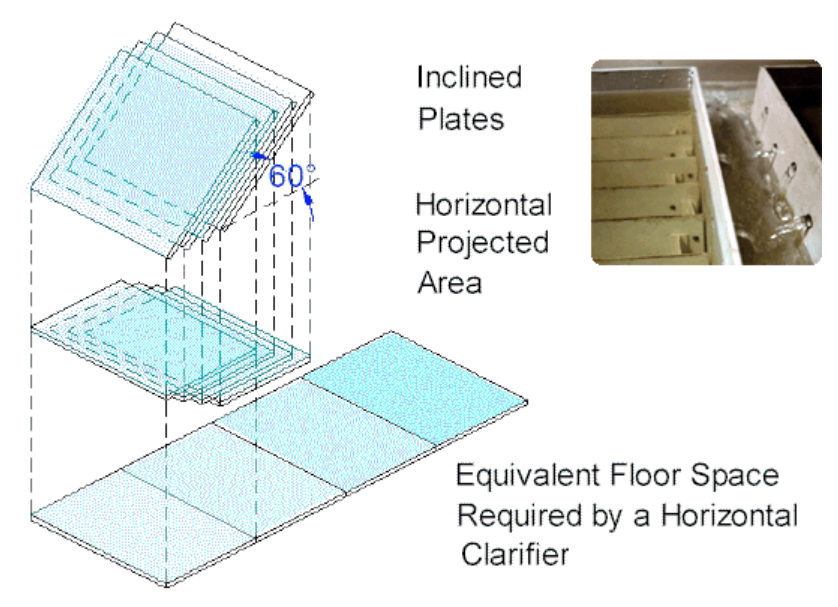
Maximum flow rate of an inclined plate clarifier is based on the flow rate per unit of a horizontally projected surface area. Retention time in the clarifier is not a design criteria. However, attaining optimum performance requires the prudent design to recognize several additional, very important factors.
Inclined plate clarifier, Lanmei inclined plate clarifier, Inclined Tube Settler,High-Efficiency Inclined Tube
Wuxi Feiyiya Environmental Protection Technology Co., Ltd. , https://www.fefinegrille.com